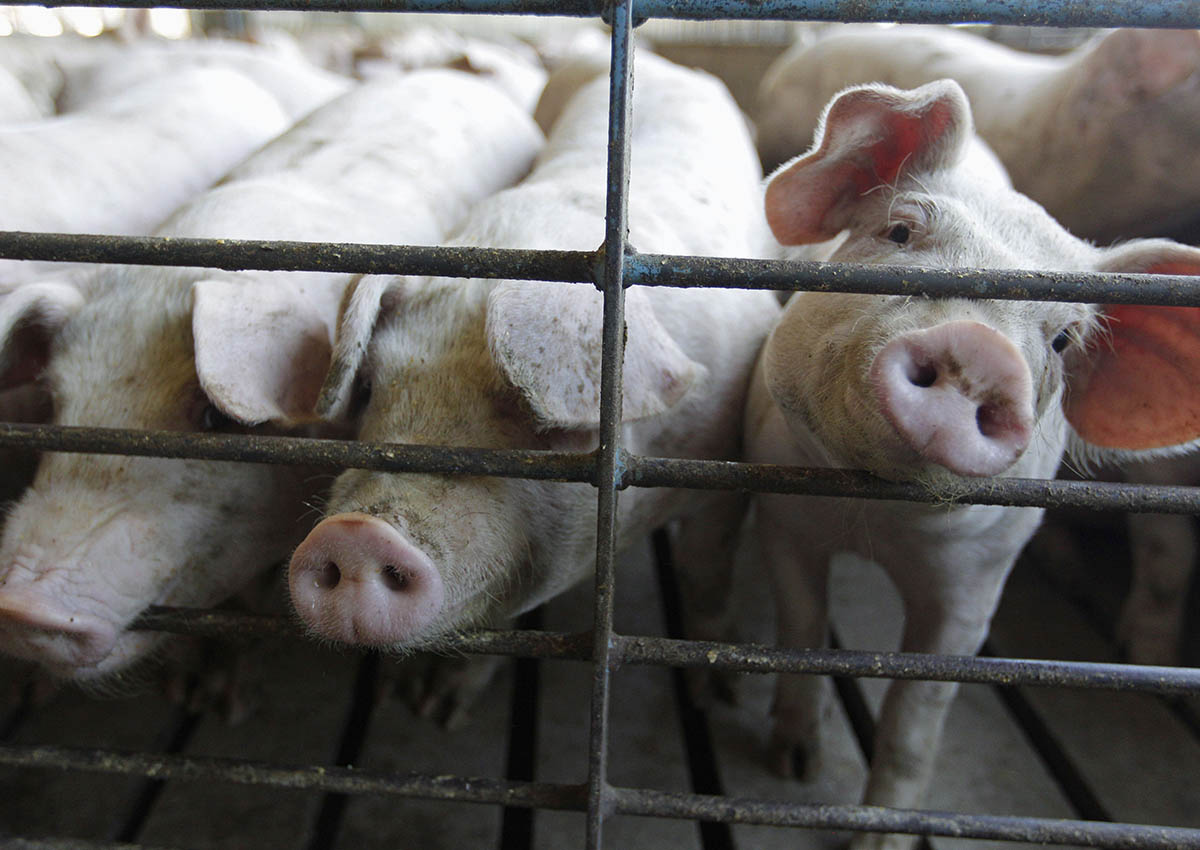A Canadian shipment of pig feet to China, produced by Olymel LP, has tested positive for residues of banned growth drug ractopamine and may curb future trade, Canadian government and industry officials say.

China views the tainted shipment as a “systemic failure” of Canada’s program that certifies pork sent to China is free of ractopamine, and the situation “could affect future pork exports,” according to an email to the industry from the Canadian Food Inspection Agency (CFIA). The email circulated on Monday and was obtained by Reuters.
The pig feet were shipped by privately-held Olymel, and were produced at the its Vallee-Jonction, Quebec slaughter and processing plant, company spokesman Richard Vigneault said.
READ MORE: Next round of China-Canada trade talks coming this summer: John McCallum
Olymel, one of Canada’s two biggest pork processors, is investigating how it may have shipped the pork with ractopamine to China, Vigneault said.
CFIA has temporarily stopped signing certificates that allow the plant to export to China, and asked the company to send back any other shipments that may be in transit to that country, spokeswoman Lisa Murphy said.
Chinese inspection authority AQSIQ notified CFIA on Friday that the 27,000-kilogram (60,000-lb) shipment of frozen pork hocks, also known as pig feet, contained ractopamine, she said.
WATCH: B.C. winemakers imprisoned in China

China, the world’s biggest pork consumer, is one of Canada’s biggest pork markets, importing 314,000 tonnes worth C$587 million in 2016, according to Statistics Canada. Pig feet are a popular dish in China.
The last time China detected ractopamine in a Canadian pork shipment, in 2015, it removed several Canadian processing plants from its list of eligible exporters to China, said Gary Stordy, spokesman for the Canadian Pork Council, an industry group.
“We’re taking this as a serious situation,” Stordy said. “We want to understand what happened in the program and how we can take corrective action.”
CFIA certifies that Canadian pork sent to China is free of ractopamine, based on verification from farmers, feed mills and pork processors. China bans ractopamine, sold as an Eli Lilly & Co drug called Paylean, because of concerns about food safety.
Chinese authorities have stepped up testing of Canadian pork for ractopamine as a result of the tainted shipment, CFIA said. A spokesman for the Chinese Embassy in Ottawa could not be immediately reached.
- Posters promoting ‘Steal From Loblaws Day’ are circulating. How did we get here?
- Video shows Ontario police sharing Trudeau’s location with protester, investigation launched
- Canadian food banks are on the brink: ‘This is not a sustainable situation’
- Solar eclipse eye damage: More than 160 cases reported in Ontario, Quebec



Comments